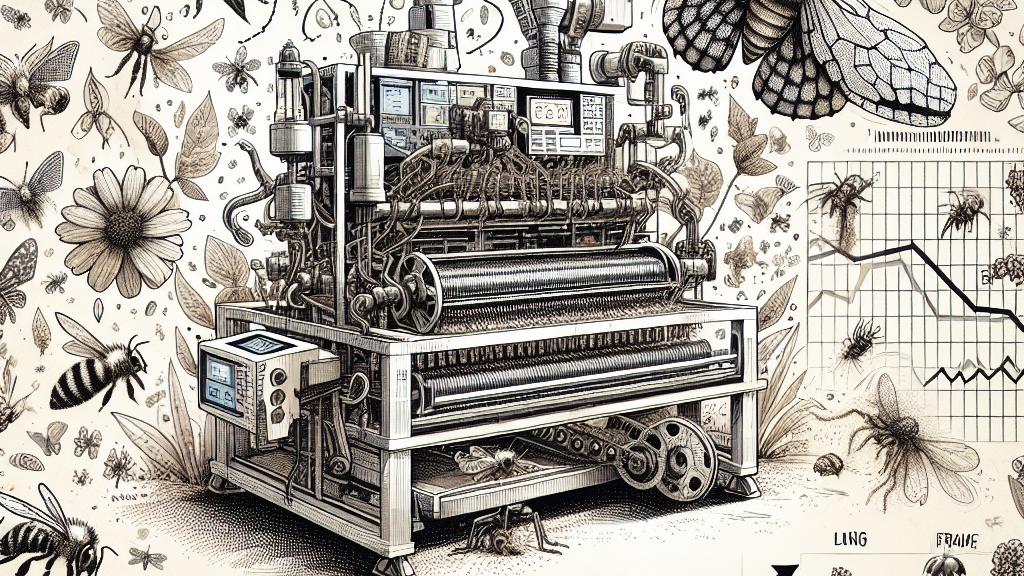Canada's Innovative AI Efforts to Combat Insect Extinction
Overview
- Canadian researchers utilize cutting-edge AI to monitor rapidly declining insect populations.
- The Montreal Insectarium spearheads this essential initiative, pioneering advanced methods of data collection.
- AI-generated insights aim to revolutionize conservation strategies, ensuring the protection of vital ecosystems.

The Context of Insect Decline
In Canada, a pressing crisis is unfolding as insect populations plummet at an unprecedented rate. Recent studies indicate that as many as 40% of insect species may face extinction within the next few decades. The director of the Montreal Insectarium, Maxim Larrivee, explains that this decline mirrors historic extinction events—sometimes dubbed an 'insect apocalypse.' The critical role of insects in our ecosystems cannot be overstated; they are fundamental for pollination and nutrient cycling. For instance, agricultural yields depend heavily on insect pollinators, contributing over $15 billion annually just in the United States. Imagine a world devoid of bees and butterflies, where flowering plants struggle to reproduce. The ecological consequences would be dire, disrupting not only food chains but also the natural balance of ecosystems.
Antenna Project: A Pioneering Approach
Amidst this looming catastrophe, the Antenna project offers a bright spot in the fight to reverse insect extinction. This groundbreaking initiative, based in Montreal, harnesses the power of artificial intelligence alongside state-of-the-art surveillance technologies to gather crucial data regarding insect populations. For example, solar-powered camera traps are being deployed from the rugged terrains of Northern Canada to the vibrant rainforests of Panama. These traps capture high-resolution images of insects every ten seconds, providing an incredible amount of information. Recently, during field tests in Panama, researchers discovered 300 new insect species within just one week—striking evidence of how much we still have to learn about our biodiversity! Larrivee posits that, through the Antenna project, we might be able to double the biodiversity data accumulated over the past 150 years in just a few short years. This project not only showcases technological prowess but also encourages community engagement, inviting citizen scientists to help collect and analyze data, thus fostering a collective responsibility toward caring for our planet.
Future Implications for Conservation
The implications of the Antenna project reach far beyond Canada, setting a precedent for global efforts in insect conservation. By accurately documenting insect populations and uncovering previously unrecognized species, AI empowers scientists and policymakers to create informed conservation strategies that are desperately needed. Consider, for example, the ability to identify population trends among bees or butterflies in specific habitats—this knowledge can prioritize areas for protection and inform restoration efforts. Furthermore, this innovative approach allows for real-time monitoring capable of quickly responding to emerging threats like habitat destruction or climate change. As artificial intelligence continues to evolve, it stands to become a linchpin in conserving biodiversity, enabling us to envision a future where ecosystems thrive abundantly. Ultimately, the combination of innovative technology and collaborative action could mean the difference between a flourishing natural world and one on the brink of collapse, reinforcing the imperative to act decisively now.

Loading...